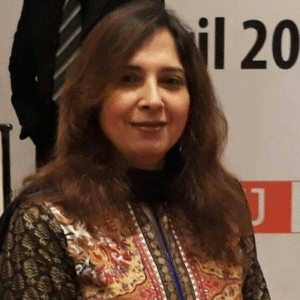
Pakistan has been elected as the Vice Chair of the UNESCO Executive Board for the term 2023-2025, which is a significant victory for the country. The election took place during the 218th Session of the UNESCO Executive Board that was held in Paris. Pakistan was able to secure 38 votes out of the 58 Executive Board members, which was a major triumph over India, which only received 18 votes.
This victory is a testament to Pakistan’s continued representation and leadership within UNESCO, which highlights its dedication to actively contributing to the organisation’s mission and objectives. UNESCO seeks to promote global cooperation in several areas, including education, sciences, culture, communication and information. Its initiatives also include preserving cultural heritage sites and advancing scientific research.
The Preamble to the Constitution of UNESCO states that wars start in the minds of people; hence, it is necessary to construct defences of peace in their minds. UNESCO’s creation was in response to the belief of nations shaped by two world wars in less than a generation that political and economic agreements alone are not enough to establish lasting peace. Humanity’s moral and intellectual solidarity is the basis on which peace must be built. The overriding objective of UNESCO is to help its member countries build educational, cultural and scientific systems that encourage coexistence, enhance peace and develop an understanding that basic human values transcend territorial and cultural boundaries.
UNESCO has been operating in Pakistan since 1958, providing support in achieving its national development plans and priorities. As responsible Vice Chair, Pakistan is expected to first put its house in order in areas where UNESCO has been instrumental in bringing change for the long-term benefit of countries. Pakistan has yet to cross several milestones before coming on a par with the education level of developed countries. Not only is our budget low, but we also have a policy framework that needs more focus and consistency. As a result, the arena of scientific scholarship also awaits proper harvesting.
Assuming the prestigious role of UNESCO Vice Chair is not merely a national achievement for Pakistan; rather, it signifies a critical juncture demanding a self-exploration that paves the way for the development of Pakistan and the region. Initially, Pakistan should leverage this victory to address domestic capacity challenges in knowledge, research and administration. Pakistan can bolster its educational infrastructure, promote scientific research and enhance administrative efficiency by tapping into the organisation’s vast expertise and best practices. These measures are poised to elevate Pakistan’s standing within UNESCO while significantly contributing to the nation’s intellectual and institutional growth.
Moreover, Pakistan’s commitment must transcend rhetoric and be manifested in tangible actions aligned with the Sustainable Development Goals (SDGs). The position also offers a unique platform for Pakistan to champion initiatives addressing global challenges such as climate change, cultural preservation and inclusive education while spearheading projects resonating with the SDGs and contributing to the well-being of humanity at large.
Regarding regional development, Pakistan should harness its newfound influence within UNESCO to foster collaboration among South Asian nations. Initiatives encompassing educational and cultural exchange programmes, joint research ventures and shared initiatives have the potential to strengthen regional bonds, fostering a climate of cooperation and understanding.
In multilateralism, Pakistan can showcase its commitment by initiating processes that solve global challenges through collaborative solutions. In the meantime, Pakistan can contribute substantively to the evolution of international norms, promoting a world order based on mutual respect, understanding and shared values.
In education, Pakistan should prioritise initiatives addressing gaps in access and quality. Leveraging UNESCO’s expertise, we can develop innovative educational programmes focusing on technology-driven solutions reaching marginalised communities. This proactive approach aligns with UNESCO’s mission and will position Pakistan as a leader, leveraging education as a catalyst for societal progress.
Cultural preservation should be a cornerstone of Pakistan’s UNESCO agenda, utilising the nation’s rich history and diverse heritage to contribute to global efforts in safeguarding cultural treasures. Collaborative projects aimed at preserving historical sites, promoting traditional arts and fostering cultural exchange can solidify Pakistan’s role as a custodian of global heritage.
In conclusion, Pakistan’s success in securing the position of UNESCO Vice Chair is more than a diplomatic triumph: it is a gateway to a future where the nation can shape global narratives of education, science and culture. Strategic leveraging of this position enables Pakistan to transcend current challenges, ensuring a legacy of progress for future generations. The focus should extend beyond individual accomplishments to collective achievements benefiting not only Pakistan but also the entire South Asian region and the broader international community.
The UNESCO Vice Chair position is both a mantle of responsibility and opportunity, one that Pakistan must wear with a forward-looking vision transcending borders to enrich the global community. As said by UNESCO’s Director-General, “Peace is more than the absence of war, it is living together with our differences — of sex, race, language, religion or culture — while furthering universal respect for justice and human rights on which such coexistence depends.”
—
The writer is a public policy analyst based in Lahore. She tweets @durdananajam


